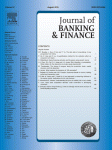Publications

Type of Publication: Article in Journal
What Explains the Dynamics of 100 Anomalies?
- Author(s):
- Jacobs, Heiko
- Title of Journal:
- Journal of Banking and Finance
- Volume (Publication Date):
- 2015 (2015)
- Number of Issue:
- 57
- pages:
- 65-85
- Keywords:
- anomalies, limits to arbitrage, sentiment, return predictability, behavioral finance
- Digital Object Identifier (DOI):
- doi:https://doi.org/10.1016/j.jbankfin.2015.03.006
- Link to complete version:
- https://www.sciencedirect.com/science/article/pii/S0378426615000679
Abstract
Abstract
Are anomalies strongest when investor sentiment or limits of arbitrage are considered to be greatest? We empirically explore these theoretically deducted predictions. We first identify, categorize, and replicate 100 long-short anomalies in the cross-section of expected equity returns. We then comprehensively study their interaction with popular proxies for time-varying market-level sentiment and arbitrage conditions. We find a powerful (relatively weak) role of the variation in proxies for sentiment (arbitrage constraints). In this context, the predictive power of sentiment is mostly restricted to the short leg of strategy returns. Our insights collectively suggest that the dynamics of sentiment combined with the base level (and not primarily the variations) of limits to arbitrage provide at least a partial explanation for inefficiencies.

